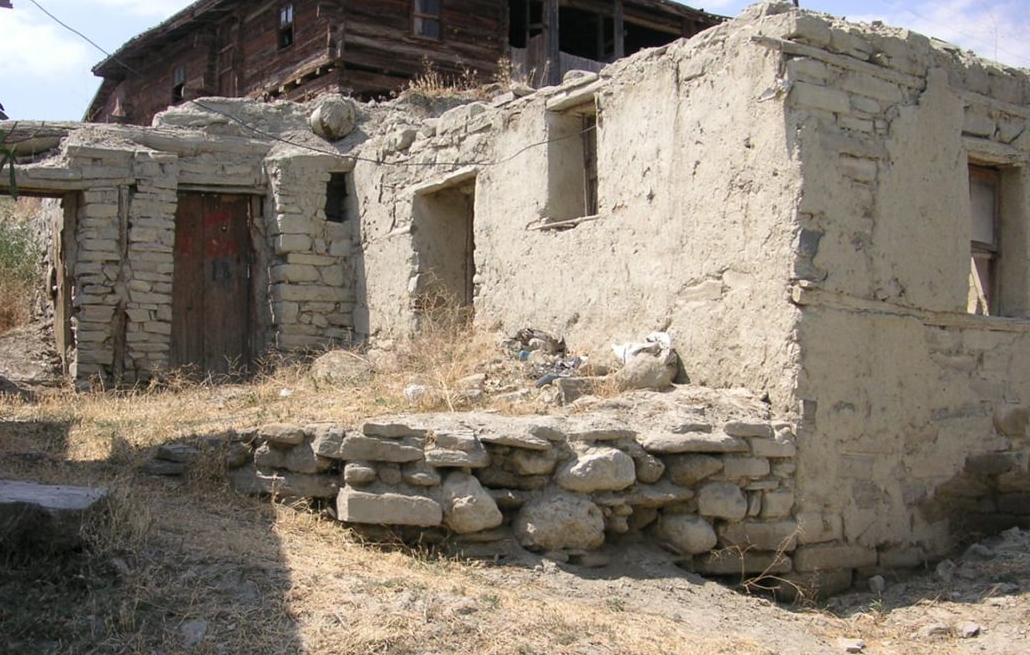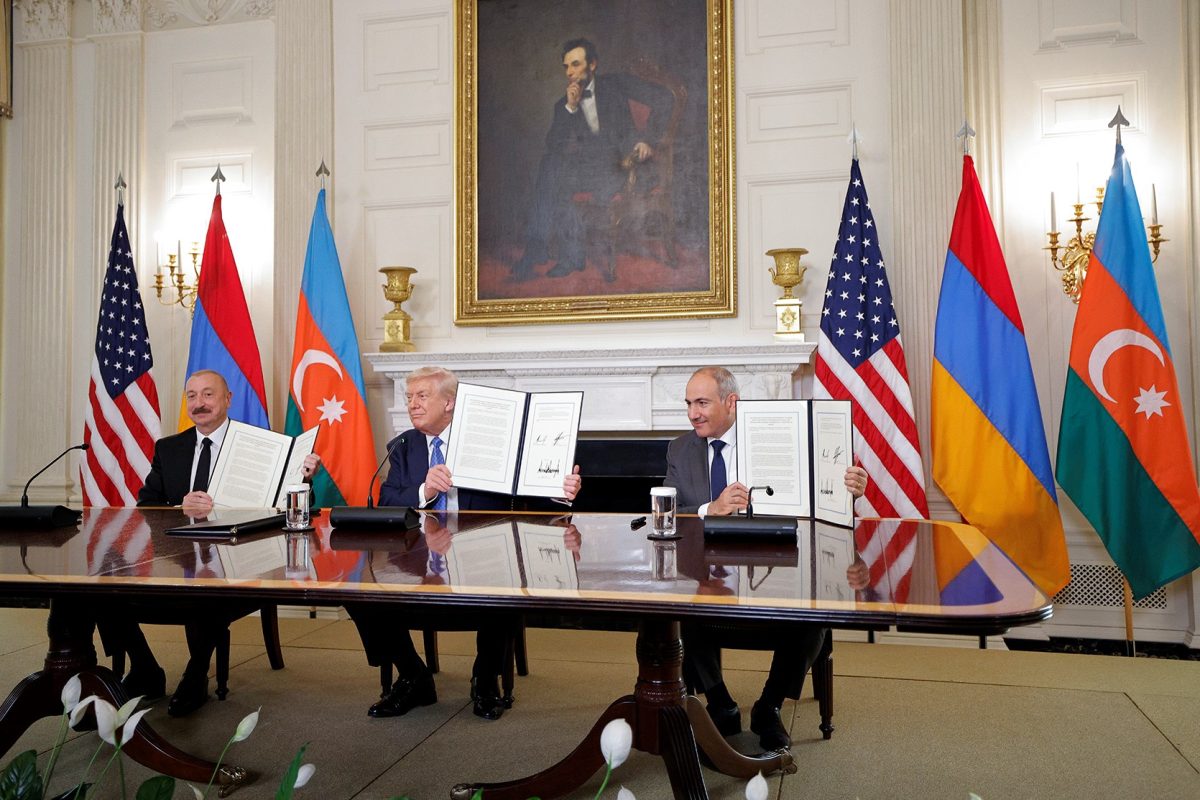Academics Erol Köroğlu has authored an article, entitled “Speaking ineffable”, in the news portal Artı Gerçek about evil, talking about evil in which he puts the Armenian Genocide and the treatment of Armenians in the Ottoman Empire and Turkey as the context of his discussion.
A large excerpt from his article follows:
“When I was discussing Maria Pia Lara’s book, “Narrating Evil”, I mentioned Kant’s simple and extremely powerful and deep phrase about evil: “The history of liberty starts with evil because evil is human product.” Evil is peculiar to humanity and ordinary people commit evil. Thinking that evil is limited with sociopaths and psychopaths means deceiving ourselves. It is necessary to accept that all ordinary people may turn to evil.
Lara underscores the importance of literature and narrating in facing the evil...Lara defines what stories succeed, while concepts fail, as speaking ineffable...Ineffable is the domain of human experience that is difficult to define through merely concepts. If we try to describe this through concepts, we face vacuum or conflict. But stories describe actions that reveal the aspects of our lives not seen at the first sight. As it is known, it is easier to understand through examples.
Cruelty and agony cannot be explained by only concepts...Indeed, we can understand why cruel actions tie the perpetrator and the victim together forever by focusing on these actions. This linkage emerges as a result of interaction called moral fault. We learn this from cruelty that good stories describe, but beyond this, our capacity to interpret the cruelty we witness and establish connections would improve thanks to these stories.
I will look at Agop Yıldız’s story, the hero of Kemal Yalçın’s documentary novel, “Survivors” [“Hayatta Kalanlar”] about the linkage between perpetrator and victim and thus I will discuss evil below. But before, we should carry theoretical discussion up to a certain level...
Lara discusses this obligation of understanding in her book as such: The first human reaction vis-à-vis the shock that evil causes would be to understand it. Interpretation and judgement would follow it. For this sake, it is obligatory to try to understand the incomprehensible. Understanding what happened does not erase the past but it makes us see that what happened in the past may have unfold differently. In other words, the past does not change but we can. Evil becomes our concern and test. When we understand cruelty, nothing will be a bed of roses, but reflection and imagination presents us a ground of moral criticism over which we can judge if we can transform ourselves. Standing on this ground, we start to live the responsibility of being humans and imagine the new society that we want to create by listening to people suffering under extreme cruelty.
In Kemal Yalçın’s documentary novel, “Survivors” which he has composed over the records of his interview with Agop Yıldız, there are many episodes about the banality of evil, ineffable, and the linkage between perpetrator and victim. Agop went to the Netherlands for work from Avloğuç, a village in Boyabat, Sinop, in 1970. They, with his elder brother Artin, living in Germany, and their families visited their village and parents still living there in 1975. Some Turkish neighbors in the village, which was half Armenian half Turkish, got jealous over this visit and made them commit an evil act against their father Kirkor whose nickname in the village was Cinosdu. Some villagers who saw Kirkor going home with a turkey stormed the house and, accusing him of stealing the turkey, started to beat him. They, not being content with beating, hung the turkey pot on his neck and made him wander first in the village and then in Boyabat where they rode him by car. Eventually, they released the poor man after receiving 4,000 liras from Cinosdu’s brother living in the same village.
This incident disturbed Agop’s entire mental balance, who was a musical instrument maker and lover, and paralyzed him in the face of this evil done to his father. Agop first lost his capability of working, left his job, and tried to survive on pills and by the help of a Dutch therapist whose language Agop could not speak well. What paralyzed Agop was his feelings of revenge of which he was ashamed as well as his inability to understand the reasons of this cruelty done to his innocent father.
...
It seems the evil his father faced was the last straw for Agop. When he asks, “How and why did they do this to my father?”, indeed he recalls all the past evils done to his family. Through the whole text, listening to Agop’s and his kins’ testimonies, we see countless evil acts. Cinosdu had been also beaten before. Armenian kids, after being called by their Muslim neighbors to be told something, were continuously beaten. And of course, as the heaviest one, Agop’s mother was raped by a villager while working on the field. Mother cannot tell this trauma anyone, but all understood and knew what happened. Furthermore, when this rapist saw child Agop, tell him “Tell my greetings to your mom” with a smirk on his face and as he was doing something ordinary.
[Years] After Cinosdu was beaten because of turkey and taken away from the village by his sons, Agop run into one of the perpetrators in Boyabat. He invited the man, who did not recognize Agop, to have a tea and later revealed who he was. When he asked the man, “Why did you do that?”, the only answer he could get from the villager, cringing with embarrassment, instead of a reason, was “We yielded to the devil once, son”. Agop did nothing to the man but went on his way leaving the man with his shame where he plopped down like a sack of potato. But even seeing this embarrassment made him feel good.
Whenever Agop meets someone from four perpetrators’ families, they feel ashamed and bow their heads. What we see here is the bondage of also perpetrators by the ineffable evil. The perpetrator who talked to Agop first, panicked not because he was scared of Agop but because he first met the question of “why” as until that moment neither perpetrators nor victims had asked the question of why. The wind had been blowing since 1915 and evil had extended like a wildfire. Perpetrators continue committing evil not because of a need but because they socialize in this way; they continue to commit evil because they can. There has been no sociability that may stop the evil.
...
It is a pleasure that Kemal Yalçın’s book shows Agop, and his family are not only historical survivors but also, they have survived by their personal effort. They have made a life for themselves and given birth to the younger generations of the family, though not in their beloved country Turkey. This should make all of us happy and energizes us for facing the evil Agop has met and erasing it from our future.
Source : https://artigercek.com/makale/agza-alinamaz-olani-konusmak-227003





